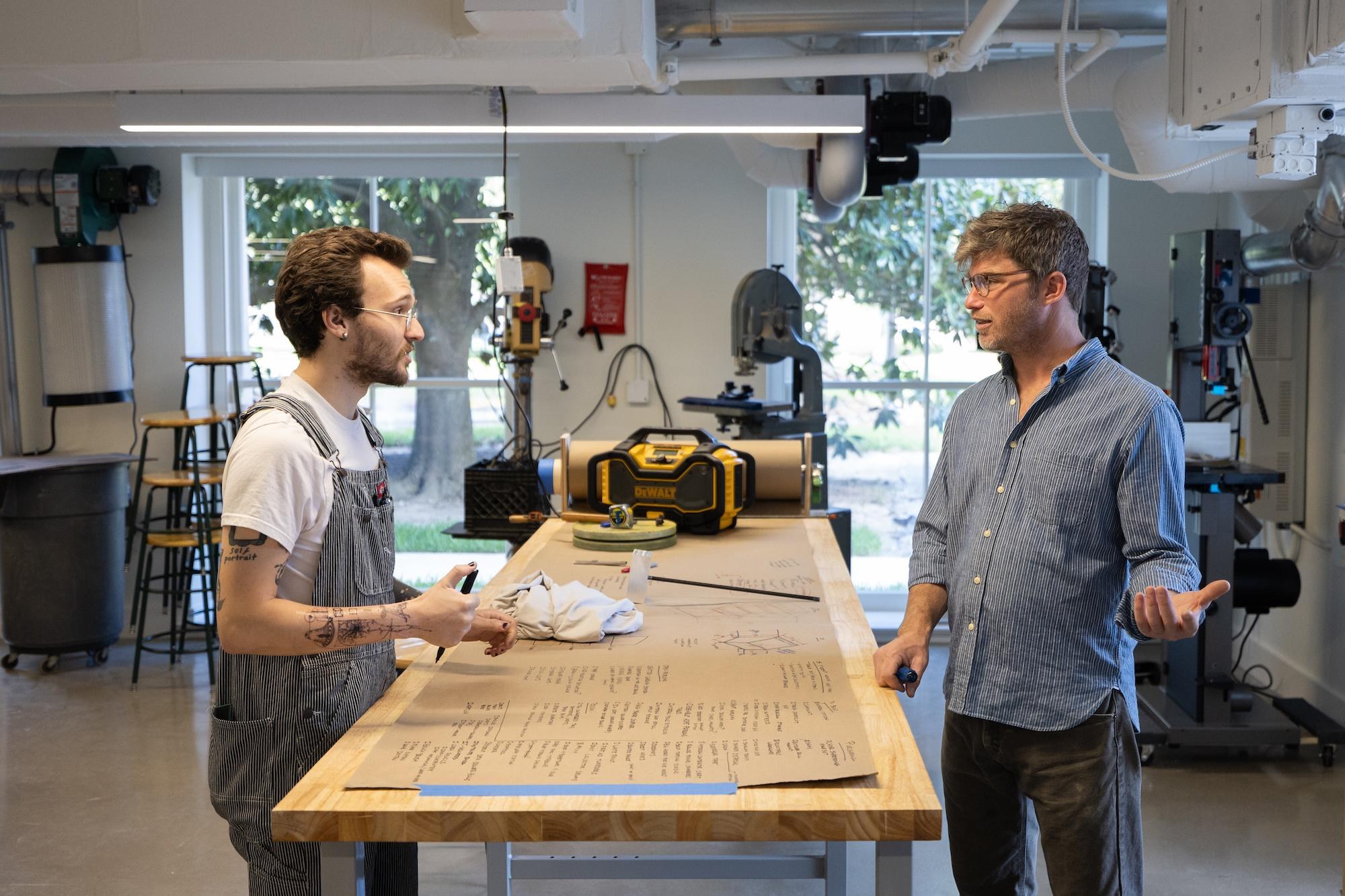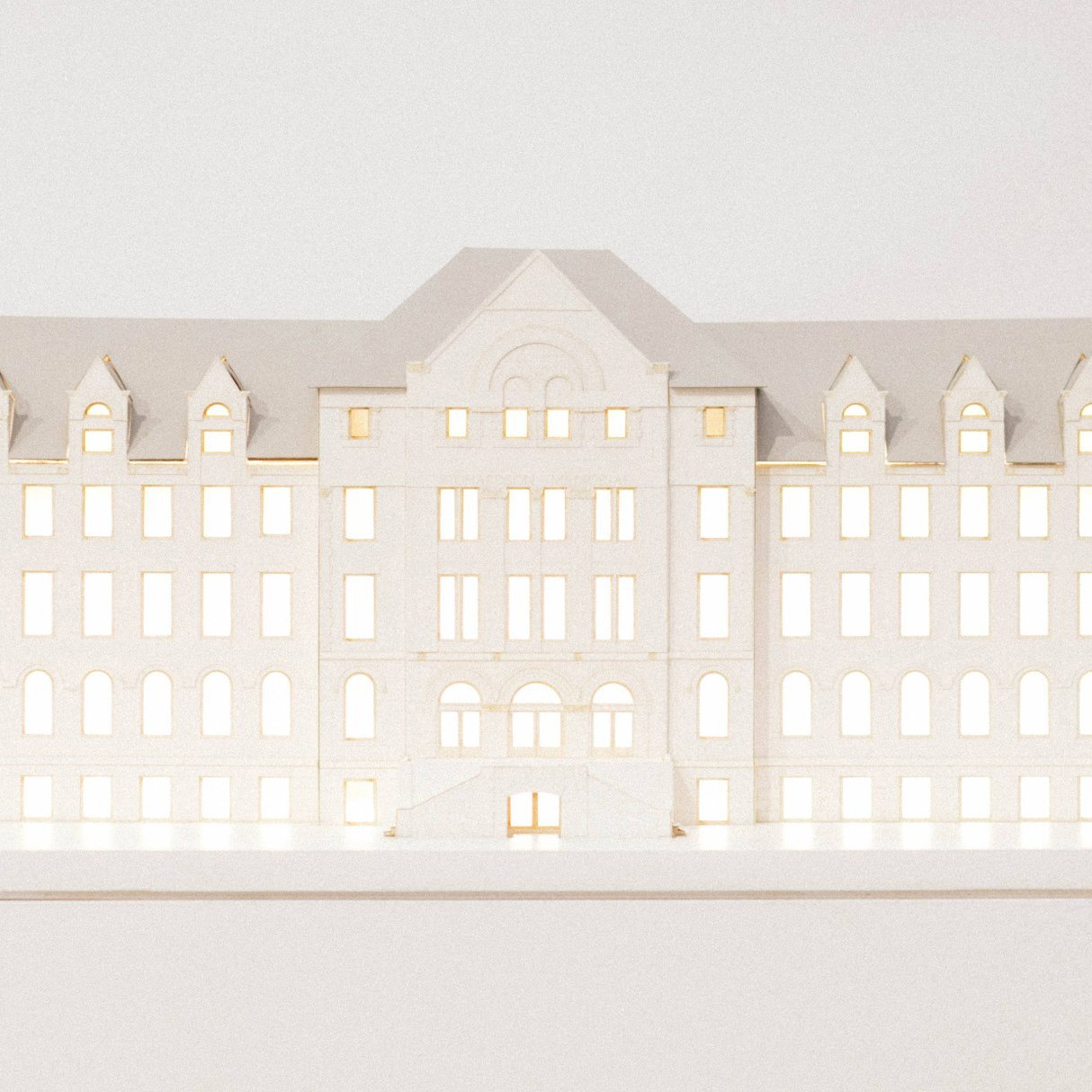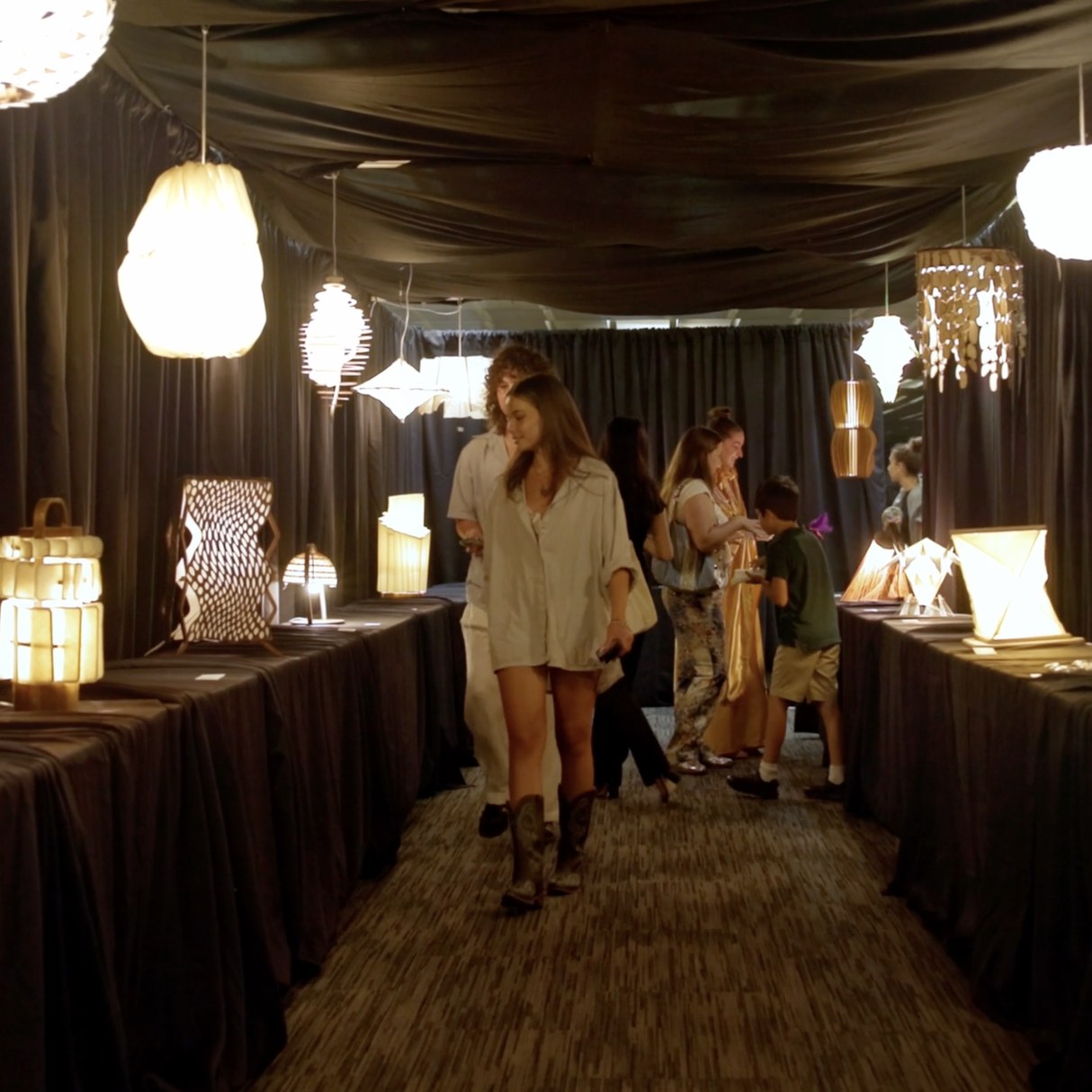Fabrication Labs
The Fabrication Labs provide students with opportunities to enrich their three-dimensional design explorations while developing their education in fabrication technologies.
The Fabrication Labs at Tulane School of Architecture and Built Environment include the Digital Fabrication Lab, Millhaus, the Woodshop, the Digital Ceramics Lab, the Textile Lab, and the Robot Lab. Please click the buttons below to submit a plot job, 3D print job, reserve laser cutting time, reserve ceramic 3D printing time, or schedule a consultation with our CNC Lab.
- Phone Number: (504)862-8016
- If you're paying with an IT form, please bring a copy with you.
- If you're paying with a check, please make it out to Tulane School of Architecture.
Manuals, Resources, & Tutorials
- Schedule (Use the arrow in the top right to see each schedule) (Calendar, text)
- Plot Submission Guidelines (PDF, text)
- Non-Architecture Plot Sizing and Submission Guide (PDF, text)
- Laser Cutting Guide / Templates
- Digital Ceramics Lab Resources
- Laser Cutting Training Site
- Digital Technology Guide - Software, Wifi, & Printing (Folder)
- DOL Payment - IT Instructions (PDF, text)
- PHAROS Drivers - PC/Mac
- Millhaus Submission Guidelines (text)
- 3D Printing Guidelines (PDF, text)
- Model Making Vendors
Digital Fabrication Lab
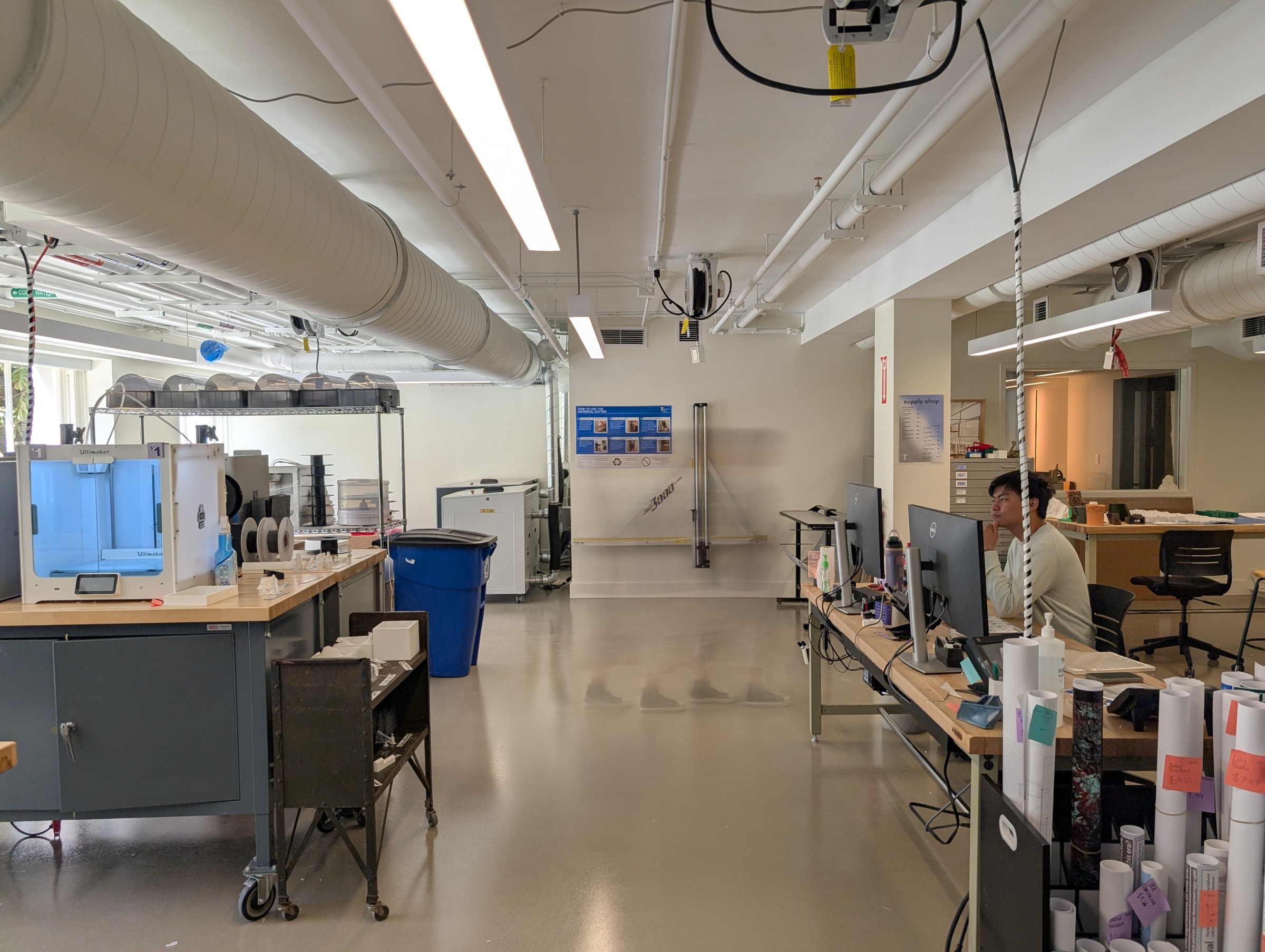
The Digital Fabrication Lab, located in Richardson Memorial Hall, room 105, is a student-run and managed digital fabrication and production center. Plotting resources include a PageWide 5000 XL printer and scanner, and an HP DesignJet Z3200 fine art printer. Students have the opportunity to work with multiple types of 3D printing technology. The 3D print lab is equipped with three Form 3 resin printers, twelve Bambu Labs printers, and five Ultimaker S5 printers. The Laser Lab is equipped with three Trotec laser cutters and one Universal laser cutter. Also in this space is our Supply Shop, where students can purchase sheet materials and consumables.
Plot Submission Guidelines (PDF, text)
Non-Architecture Plot Sizing and Submission Guide (PDF, text)
3D Printing Guidelines (PDF, text)
Supply Shop Price List (PDF)
Laser Cutting Guide / Templates
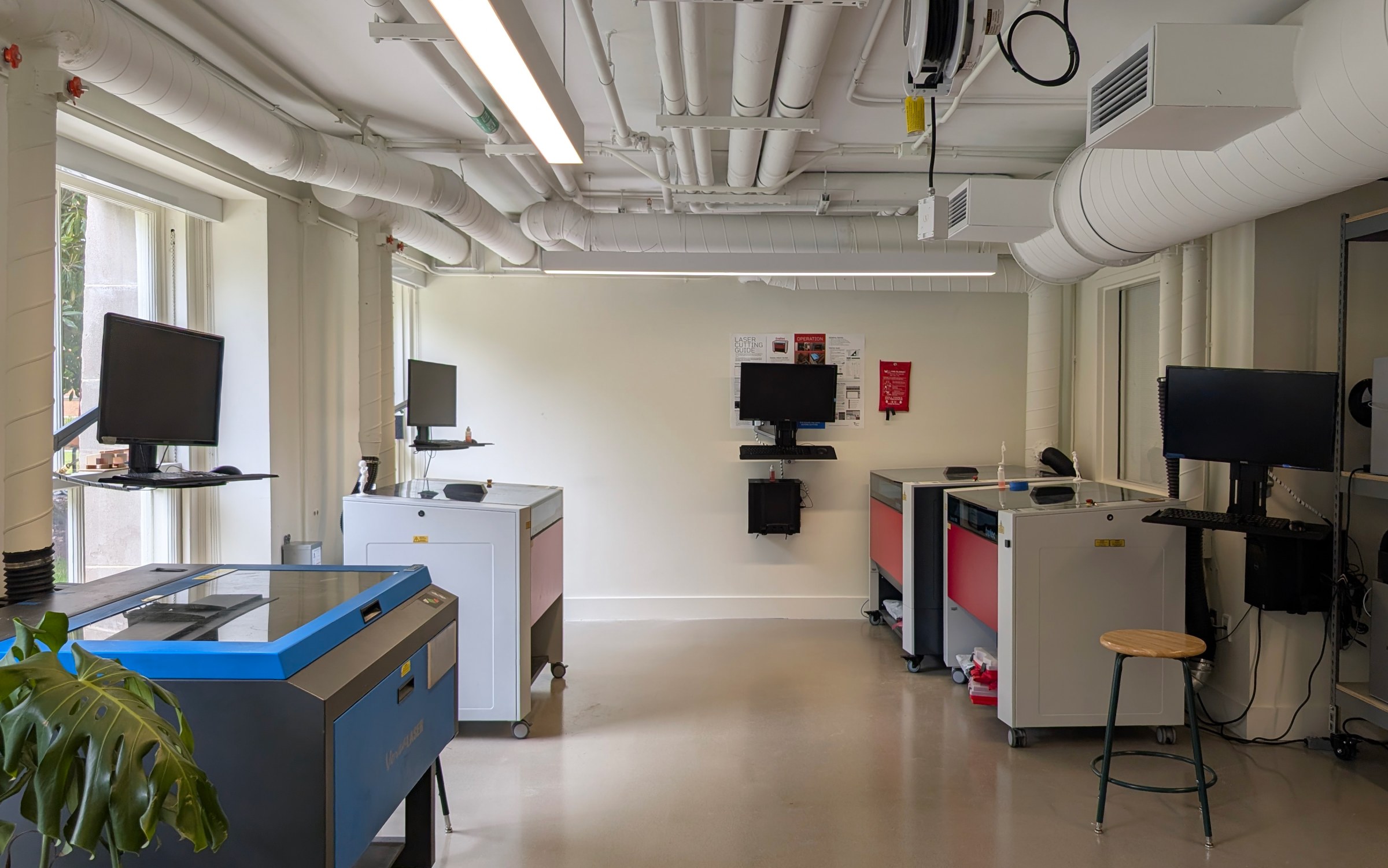
Wood Shop
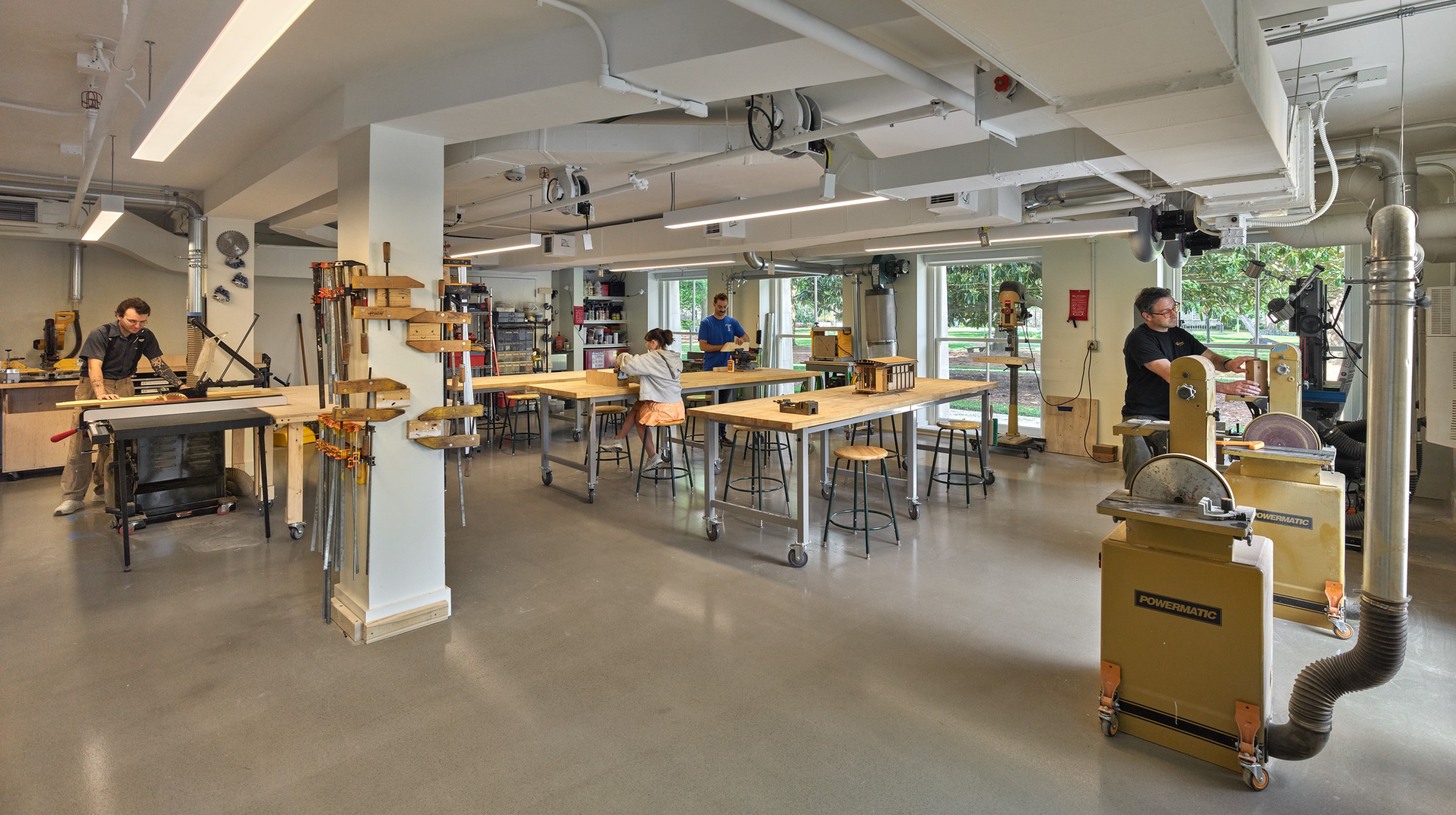
Located in Richardson Memorial Hall, room 111, the Architecture Shop enables students to work in wood, metal, concrete, and various other materials. Students are encouraged to use the Architecture Shop for academic assignments and other projects.
Millhaus
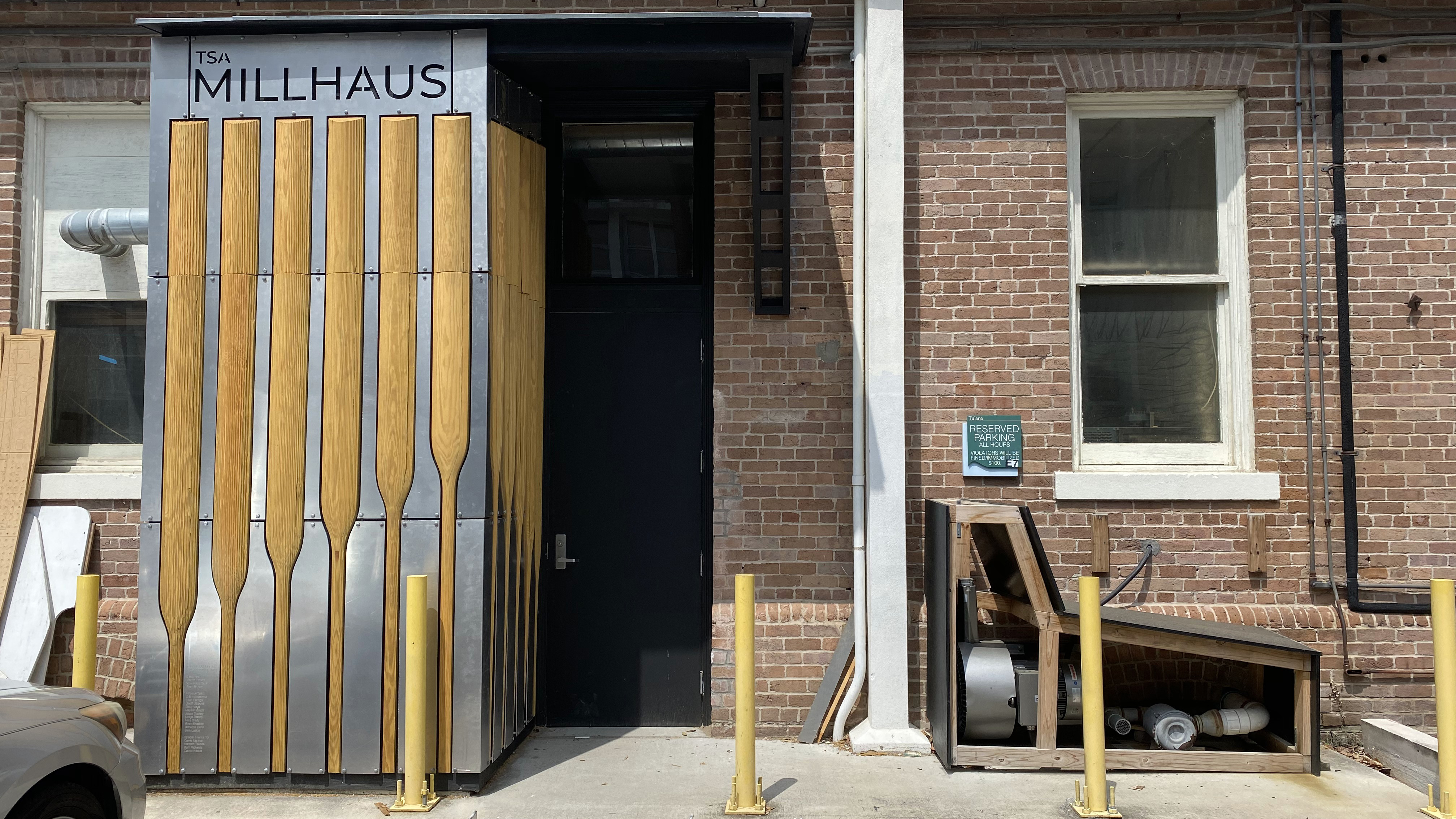
Millhaus, our CNC Lab, is located within the Science and Engineering Makerspace. Students have access to a 4'x8' Multicam CNC router.
Millhaus Submission Guidelines (text)
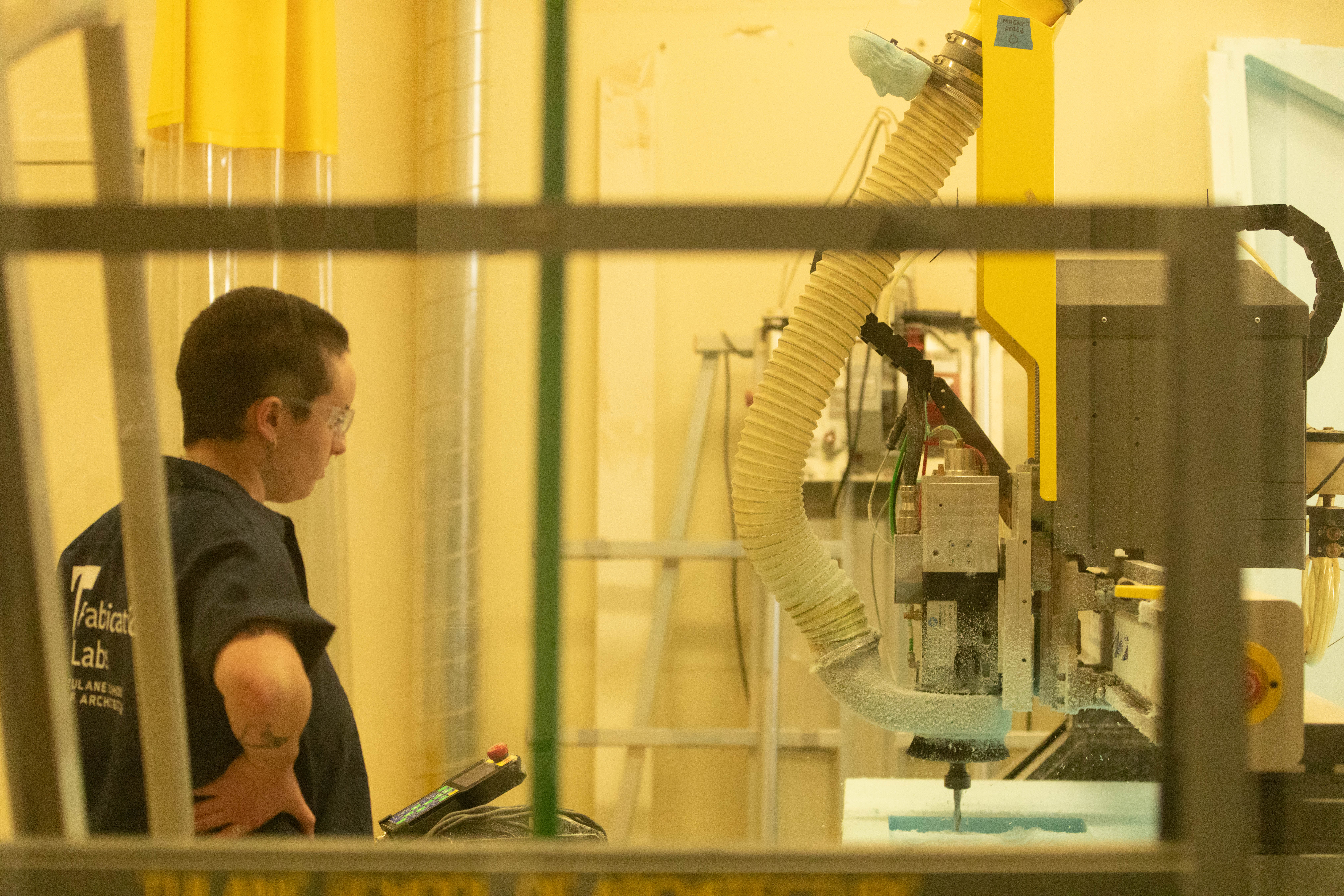
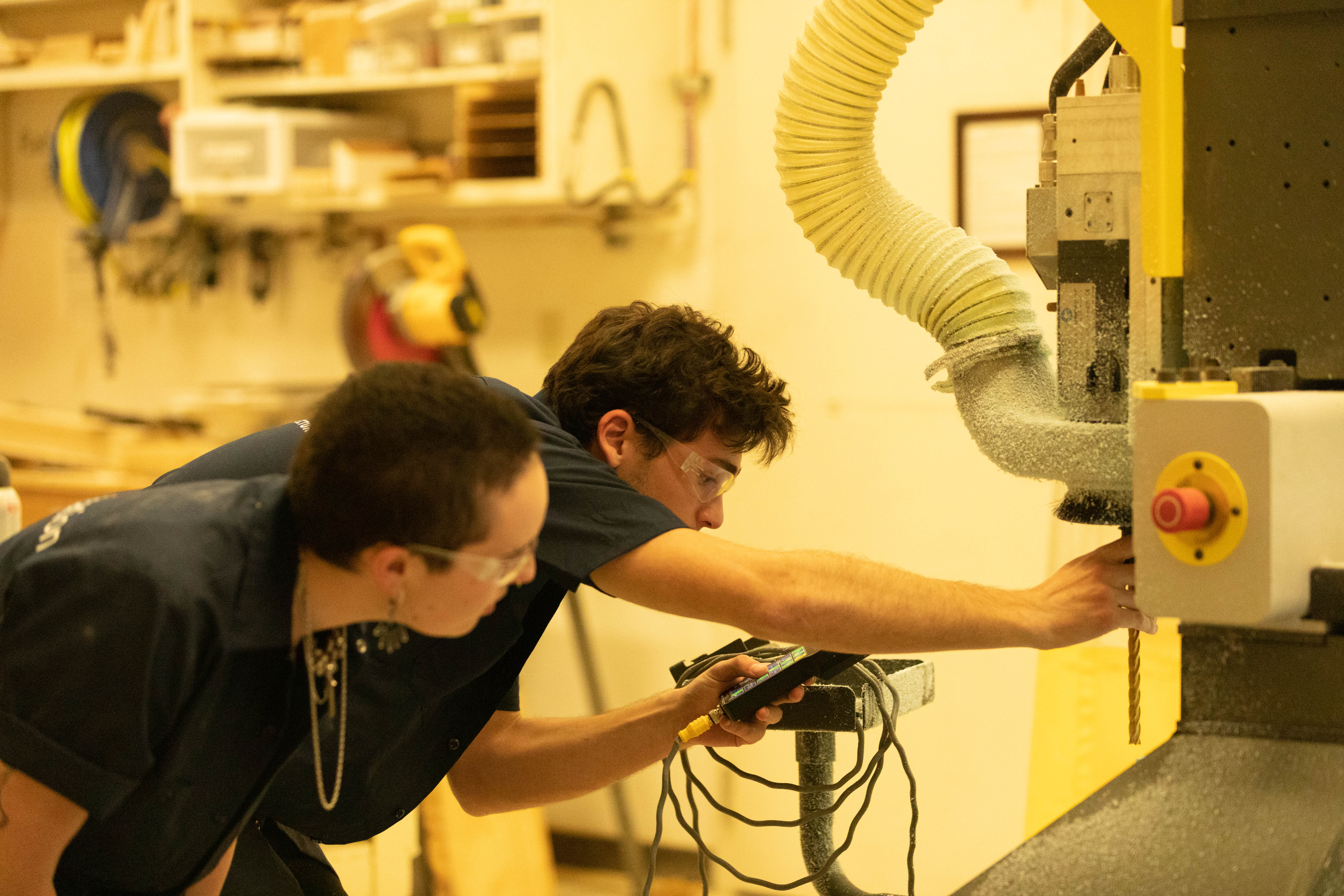
Digital Ceramics Lab

The Digital Ceramics Lab is situated in the Woldenberg Art Center. This collaboration between the School of Architecture and the Newcomb Art Department includes two Potterbot Super 10 XLs and a pug mill.
The clay printers have a bed size of 12"W x 12"D x 28" H. Art students are using the DCL for digitally fabricated sculptures and TuSA students are exploring advanced material research with parametric design.
Textile Lab
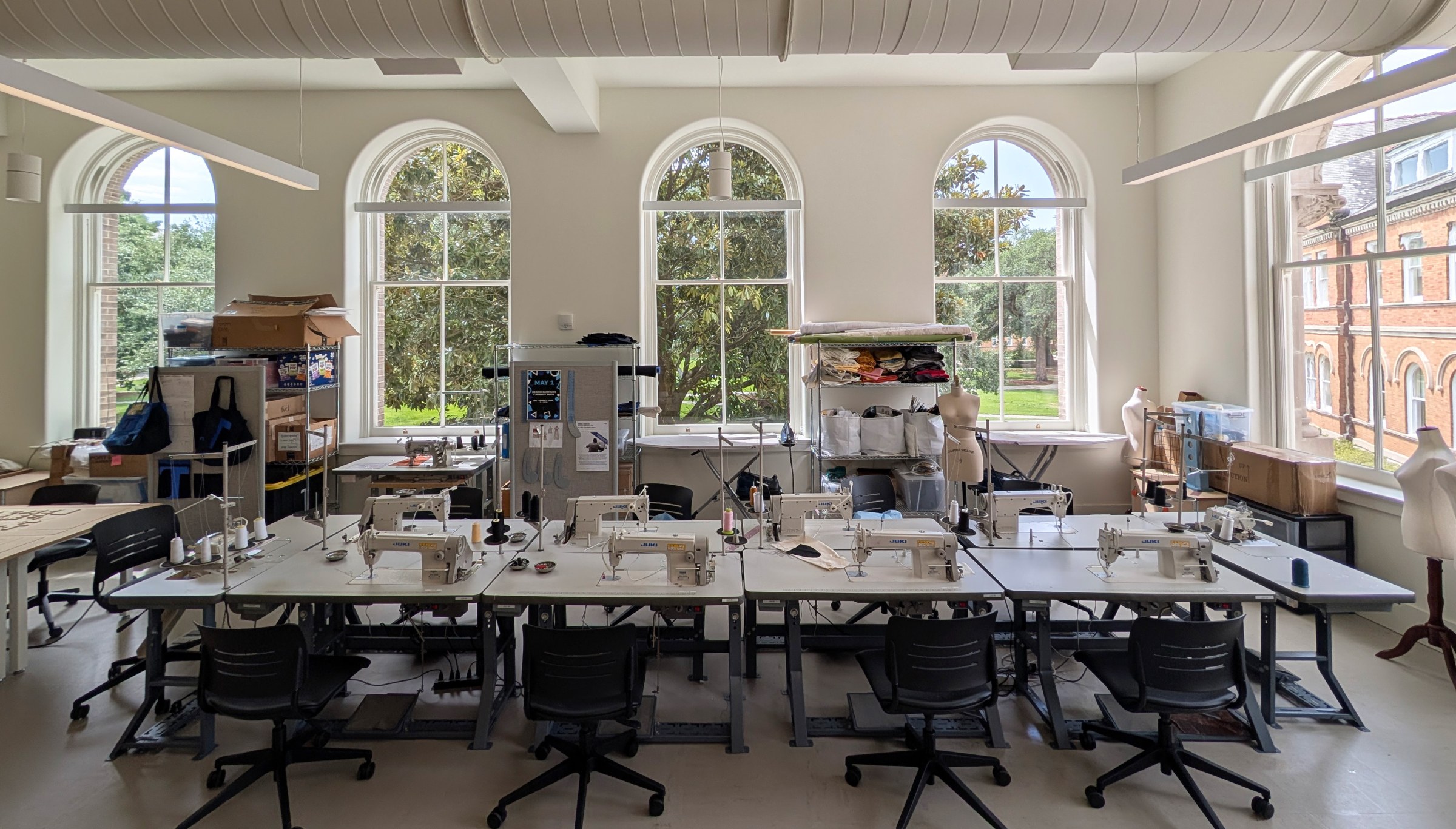
The Textile Lab is located in Richardson Memorial Hall, room 201. The space consists of 8 Juki industrial lockstitch sewing machines, 2 Juki overlock industrial sergers, 1 interlock machine, and a Canon textile printer.
In this space, design students are learning the fundamentals of textile design and garment construction.
How to thread a Juki industrial sewing machine
Robot Lab
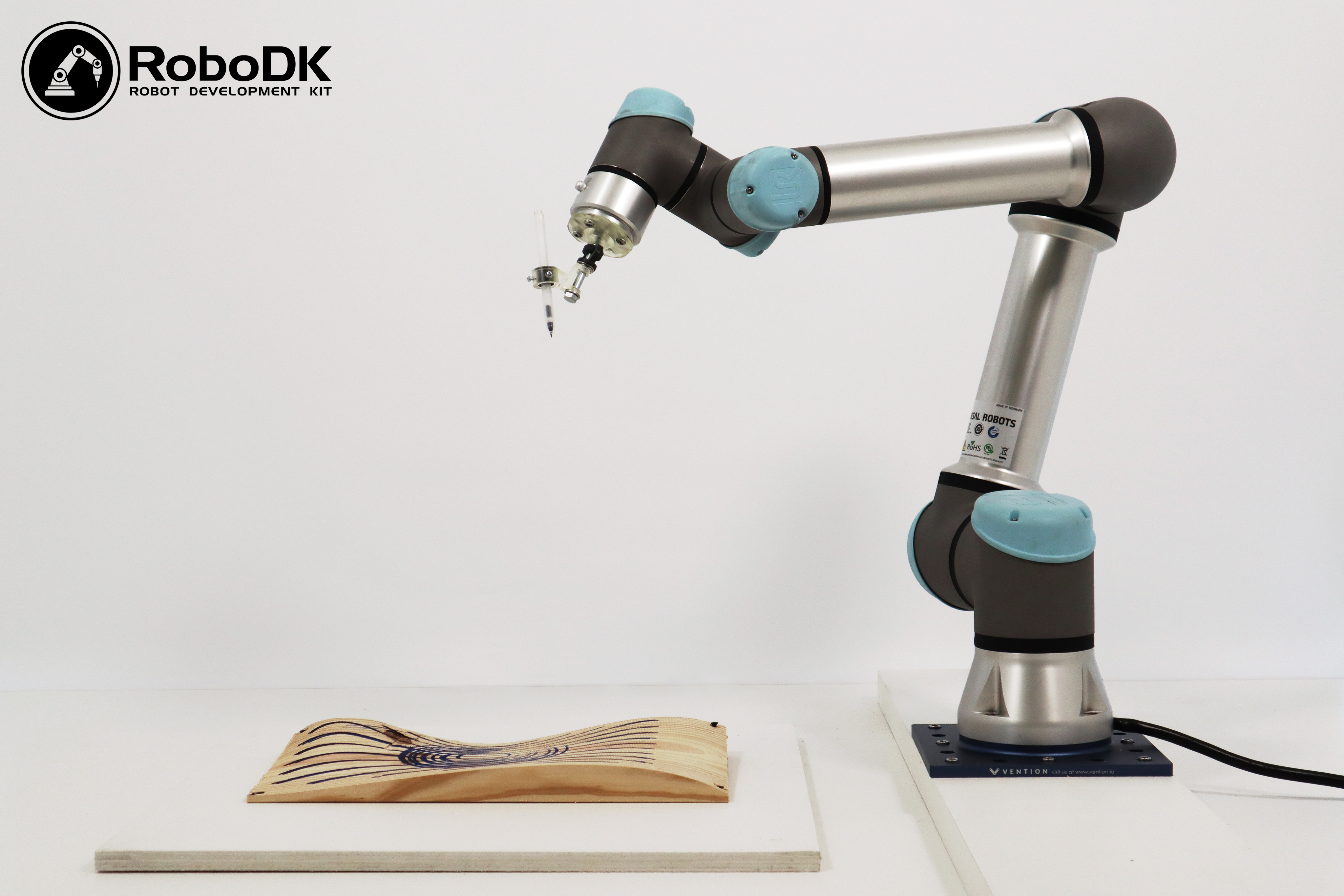
The Robot Lab includes our 6-axis Universal Robot 5e (Urie) and Artec 3D scanner. RoboDK provides students with a direct connection to the robot to work on their research and fabrication projects.
See below for some generative design projects using Urie
